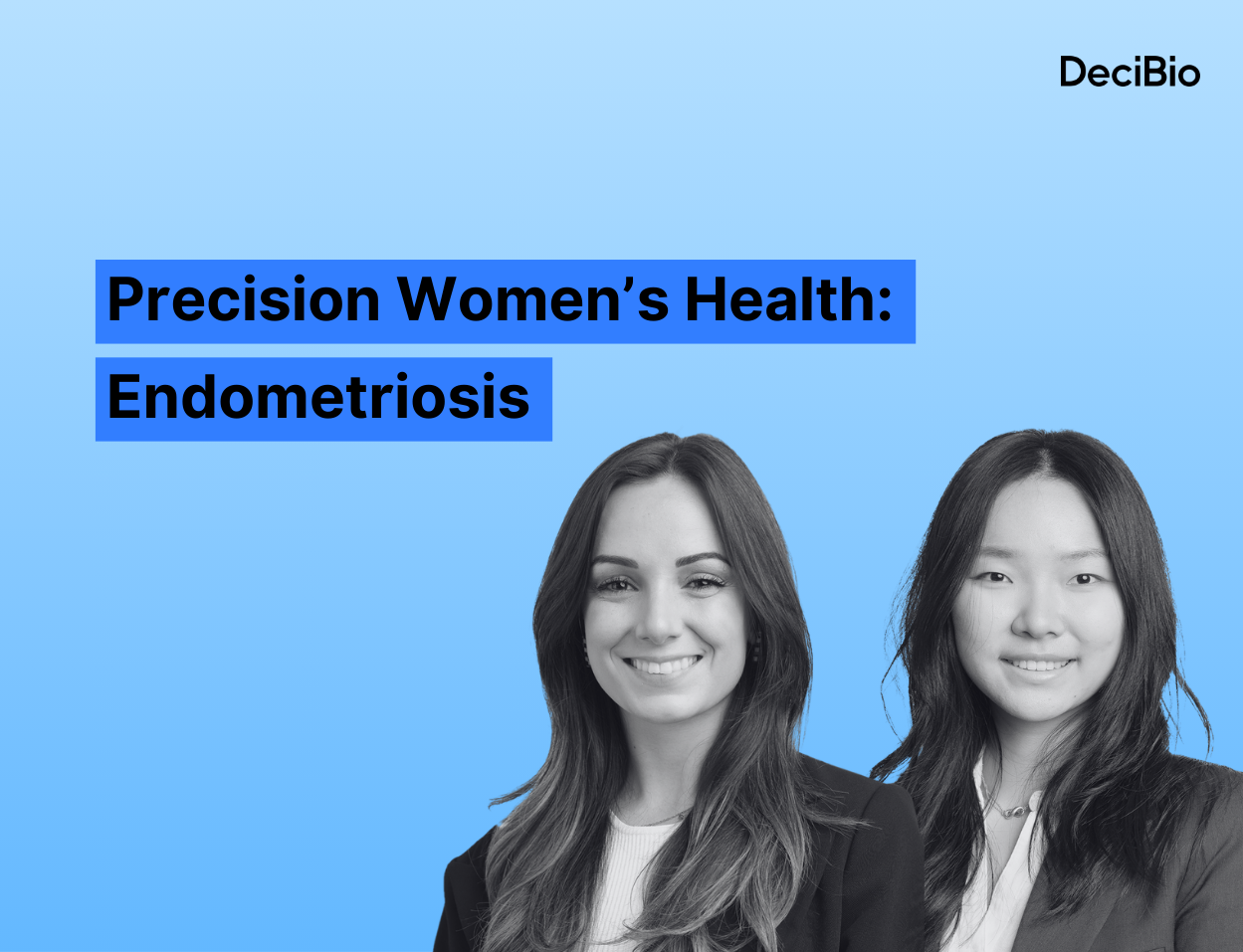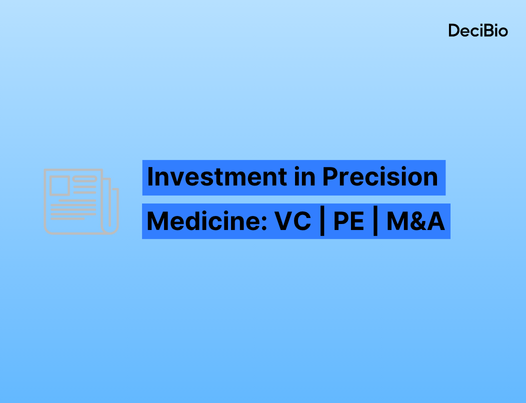Highlights & Summary
The first quarter has wrapped, and there are developments from 510(k) approvals to a Nuance and Microsoft partnership, and fruits of a Google and Mayo Clinic partnership to dive into. We bring you the most relevant snippets in digital health.
Overarching Industry Updates
1 | Rock Health publishes their 2022 year-end analysis on funding in digital health
AI / Imaging
1 | Coreline Soft’s AI-backed lung nodule detector gets FDA 510(k) clearance
2 | RapidAI’s Rapid RV/LV Cleared by FDA as Part of Its PE Care Solution
3 | Google announces new healthcare AI partnerships and tools
Disease Management / Digital Therapeutics
1 | Theranica’s Nerivio Cleared by FDA for Preventative Treatment of Migraine
2 | FTC to bar BetterHelp from sharing health data for ads
3 | U.S. FDA Grants GrayMatters Health 510(k) Clearance to Market Prism for PTSD
4 | Sunrise Receives FDA Clearance for Its At-home Sleep Apnea Test
Informatics / Healthcare IT Solutions
3 | Dario partners to integrate Dexcom CGM data
Overarching Industry Updates
1 | Rock Health publishes their 2022 year-end analysis on funding in digital health
Rock Health published its report on digital health funding in 2022 with the key observation that “strong horses will beat out unicorns.” Total digital health funding in 2022 clocked in at $15.3B, barely beating out 2020’s $14.7B total, and coming in at just around half of 2021’s $29.3B. With cheap cash harder to come by, companies must be more careful about their unit economics and work to build inherent value, whether it’s through diversifying features or building new partnerships. Only time will tell how long this funding dry spell lasts.
AI / Imaging
1 | Coreline Soft’s AI-backed lung nodule detector gets FDA 510(k) clearance
Coreline Soft, an artificial intelligence (AI) software developer based in South Korea, has received FDA and Korean Ministry of Food and Drug Safety (MFDS) clearance for its lung cancer detection software. The software uses AI to analyze CT scans of the chest to identify and characterize lung nodules that may indicate lung cancer. The company claims that the software has achieved a sensitivity of 92.3% and a specificity of 80.4% in clinical trials. This approval is expected to help Coreline Soft expand its reach in the global market.
2 | RapidAI’s Rapid RV/LV Cleared by FDA as Part of Its PE Care Solution
RapidAI, a medical imaging and stroke care software company, has received FDA 510(k) clearance for its pulmonary embolism module for triaging patients by detecting RV/LV ratio. The module is a diagnostic tool that uses artificial intelligence to help radiologists detect and diagnose pulmonary embolism from computed tomography pulmonary angiogram (CTPA) scans. The tool can identify potential cases of PE within seconds and provide the radiologist with a comprehensive report, streamlining the diagnostic process and reducing the time to treatment, and can be used alongside RapidAI’s other offerings in their proprietary Web and Mobile platforms.
3 | Google announces new healthcare AI partnerships and tools
Google has announced new healthcare AI partnerships, including one with Mayo Clinic to develop a model that automates outlining organs on CT scans for radiotherapy planning during cancer treatment. Google is also partnering with Jacaranda Health to explore AI tools to improve care for pregnant women and with Chang Gung Memorial Hospital to study using AI-embedded ultrasound to find early signs of breast cancer. It is also working with South Africa-based Right to Care to provide AI-backed tuberculosis screenings in Sub-Saharan Africa. Additionally, Google has launched an open-source toolkit for developing digital health tools, and it is expanding the health information it surfaces in search to include Medicaid re-enrollment information and information about community health centers.
A survey by Pew Research Center revealed that 60% of adults are uncomfortable with the use of AI in healthcare due to concerns about incorrect diagnoses, bias in algorithms, and privacy. Younger adults, women, and those with less education expressed more discomfort than others. However, participants who had prior experience with AI in healthcare were more comfortable with its use, and the majority of people were comfortable with AI being used for administrative tasks. The authors of the survey suggest that healthcare providers should engage with patients to understand their concerns and educate them on the benefits and limitations of AI, while transparency, accountability, and regulation are critical for building trust in AI in healthcare.
Disease Management / Digital Therapeutics
1 | Theranica’s Nerivio Cleared by FDA for Preventative Treatment of Migraine
Theranica received 510(k) clearance for the Nerivio prescription wearable for acute and preventative treatment of migraines. This offers a pharmaceutical-free treatment for those suffering from regular migraines, as medication can be ineffective or have unintended side effects. Studies showed the device was able to significantly decrease migraine days by using remote electrical modulation to activate peripheral nerves. The device wraps around the arm and is smartphone controlled; treatments lasts 45 minutes and can be used every other day for prevention.
2 | FTC to bar BetterHelp from sharing health data for ads
The Federal Trade Commission (FTC) fined BetterHelp (owned by Teladoc Health), an online therapy company, $7.8M for sharing consumer data. The FTC alleged that the company did not maintain policies to protect data and did not obtain consumer consent before selling data to companies such as Facebook. This is not the first time fines like this have been placed on digital health companies by the FTC. In February the FTC alleged GoodRx had also shared personal health information with third parties, and the company paid a $1.5M fine to settle the case.
3 | U.S. FDA Grants GrayMatters Health 510(k) Clearance to Market Prism for PTSD
GrayMatter Health received FDA 510(k) clearance for their Prism for PTSD product, a non-invasive, digital neuromodulation therapy for PTSD. The company fuses EEG and fMRI data to develop biomarkers associated with mental disorders. They then modulate those biomarkers, in this case associated with the amygdala, through self-neuromodulation techniques. Interactive audio/visual interfaces help the patients gain control over their brain activity. The company plans to seek further development for other mental disorders.
4 | Sunrise Receives FDA Clearance for Its At-home Sleep Apnea Test
Sunrise, a digital health startup, received FDA 510(k) approval for their test to aid in diagnosing sleep-related breathing disorders including sleep apnea. The test is placed on a user’s chin overnight and data is then sent to an AI-enabled app. This allows users to test for sleep apnea without being monitored overnight at a sleep center.
Informatics / Healthcare IT Solutions
Japanese information tech company, Fujitsu, recently announced a cloud-based platform designed to allow the collection, storage and leverage of health data. The platform will offer automatic conversion of EMR medical data to current HL7 FHIR standards, allowing for easy data exchange and usage. Through the conversion of personal health information into non-identifiable information, the platform will support the ability of medical institutions to offer personalized healthcare to patients. The data-generating platform is another step in the direction of technology based healthcare solutions.
Nuance Communications, part of Microsoft, has announced their new clinical documentation tool, Dragon Ambient eXperience (DAX). DAX leverages the most recent version of OpenAI’s artificial intelligence GPT-4. DAX drafts clinical notes in near real-time based on patient conversations conducted either in person or digitally. Nuance expects to release DAX Express for a private preview this summer.
3 | Dario partners to integrate Dexcom CGM data
DarioHealth is partnering with Dexcom to integrate their continuous glucose monitors into their existing chronic-condition management platform. Through the partnership, data from Dexcom’s wearable glucose sensors for diabetic patients will integrate into Dario’s suite of digital metabolic health tools. This partnership builds on their $30M strategic partnership with Sanofi wherein the goal is to expedite the adoption of Dario’s products in the U.S. through various technology partners and therapeutics.

.png)





.png)

.png)


